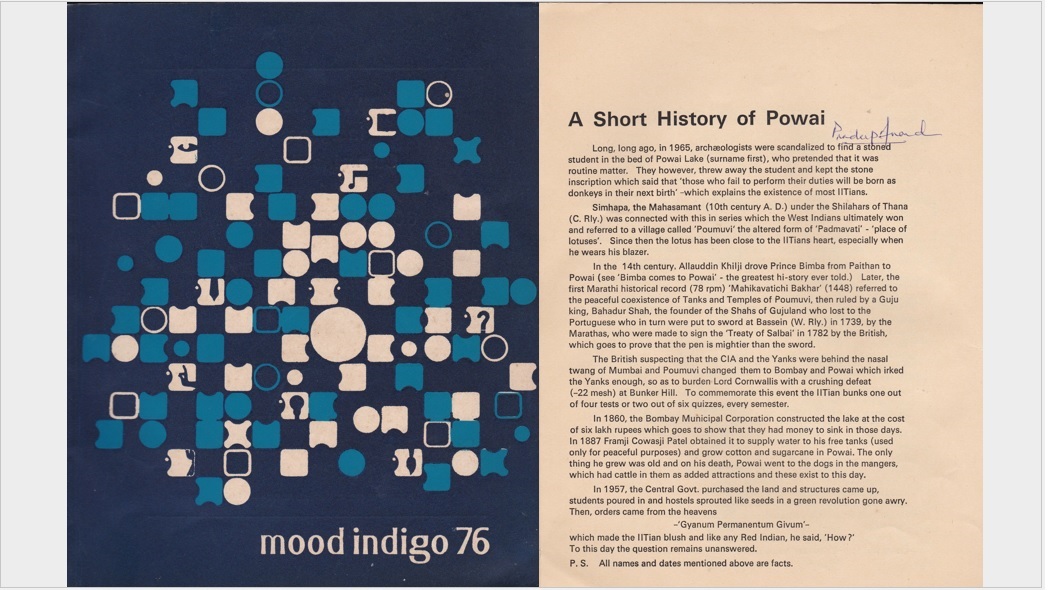Photo Courtesy: Author
Long, long ago, in 1965, archeologists were scandalized to find a stoned student in the bed of Powai Lake (surname first), who pretended that it was routine matter.
They, however, threw away the student and kept the stone inscription which said that ‘those who fail to perform their duties will be born as donkeys in their next birth’-which explains the existence of most llTians.
Simhapa, the Mahasamant (10th century A. D.) under the Shilahars of Thana (C. Rly.) was connected with this in series which the West Indians ultimately won and referred to a village called ‘Poumuvi’ the altered form of ‘Padmavati’ – ‘place of lotuses’. Since then the lotus has been close to the llTians heart, especially when he wears his blazer.
ln the 14th century, Allauddin Khilji drove Prince Bimba from Paithan to Powai (see ‘Bimba comes to Powai’ – the greatest hi-story ever told). Later, the first Marathi historical record (78 RPM) ‘Mahikavatichi Bakhar’ ( (1448) referred to the peaceful coexistence of Tanks and Temples of Poumuvi, then ruled by a Guju king, Bahadur Shah, the founder of the Shahs of Gujuland who lost to the Portuguese who in turn were put to sword at Bassein (W. Rly.) in 1739, by the Marathas, who were made to sign the ‘Treaty of Salbai’ in 1782 by the British, which goes to prove that the pen is mightier than the sword.
The British suspecting that the CIA and the Yanks were behind the nasal twang of Mumbai and Poumuvi changed them to Bombay and Powai which irked the Yanks enough, so as to burden Lord Cornwallis with a crushing defeat (-22 mesh) at Bunker Hill. To commemorate this event the llTian bunks one out of four tests or two out of six quizzes, every semester.
ln 1860, the Bombay Municipal Corporation constructed the lake at the cost of six lakh rupees which goes to show that they had money to sink in those days.
ln 1887, Framji Cowasji Patel obtained it to supply water to his free tanks (used only for peaceful purposes) and grow cotton and sugarcane in Powai. The only thing he grew was old and, on his death, Powai went to the dogs in the mangers, which had cattle in them as added attractions and these exist to this day.
ln 1957, the Central Govt. purchased the land and structures came up, students poured in and hostels sprouted like seeds in a green revolution gone awry.
Then, orders came from the heavens -‘Gyanum Permanentum Givum’- which made the llTian blush and like any Red Indian, he said, “How?”
To this day the question remains unanswered.
~ Originally published in Mood Indigo ’76 Souvenir

1 comment
Hilarious PA. And I thought I was the only “donkey” who had his history muddled.